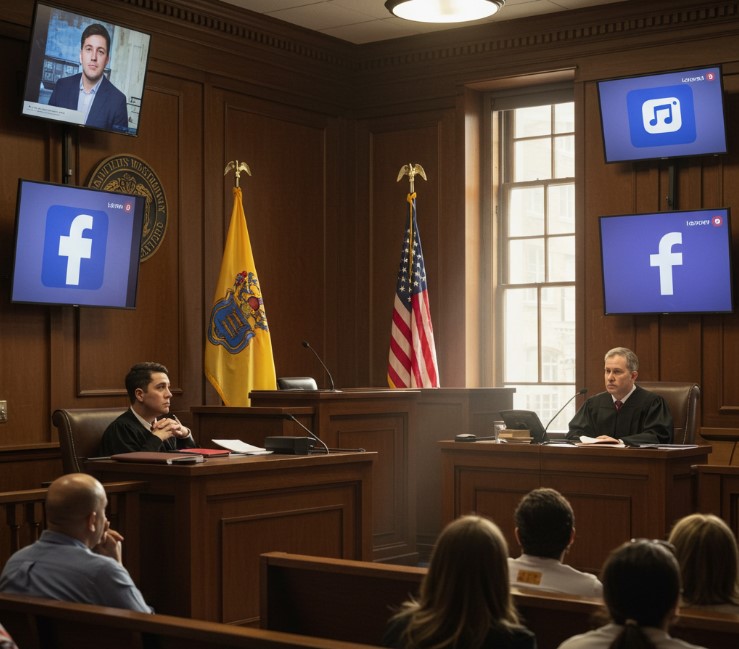Published in New Jersey Lawyer, August, 2008
Our Democracy depends on the character of our elected officials. From time to time all governments need to examine their conduct and when necessary, undertake reasonable reforms. One can only imagine what image Thomas Nast would cast in response to New Jersey’s current state of political corruption. But based upon the extent of the corruption, perhaps he would have used a locust instead of the tiger he drew to depict Tammany Hall.
The U.S. Attorney in New Jersey has successfully prosecuted more than 126 elected officials from both political parties. In response, many local governments have instituted much needed reforms. The surest reform and one of the most effective are the anti pay-to-play ordinances that prohibit professionals seeking employment from buying their appointments through political campaign contributions.
Despite the state’s current plague of corruption, some have suggested that the pay-to-play reform laws may be constitutionally defective as abridging free speech. The flaw in such arguments is their failure to comprehend that such ordinances are not campaign finance reform. Any impact on campaign fundraising is a tangential affect. The pay-to-play laws are intended to reform public contract practices in an effort to restore the public’s confidence in government.
Let’s review the negative impact of pay-to-play. First, it is believed professionals are asked to contribute a percentage of their annual salary to the party organization. While most professionals are honorable and dedicated public servants, some might inflate their billing to compensate for these contributions. Taxpayers get saddled with that cost.
Second, professionals are injured by this process as it undermines their integrity and leaves open their competence. By eliminating pay-to-play, local governments can now seek the most competent professionals for the best price. The public benefits by getting the best professionals-not those who are the best campaign contributors.
Third, professionals are victims of this system because they have to make these contributions or else there will be no future employment. N.J.S.A. 19: 44A-20.13 suggests that there is only a perception that campaign contributions are often made seeking a favor. That finding is soft. Pay-to-play is a classic quid pro quo. Now, this may come as a shock to some, but most of the money paid by these professionals goes to county organizations. The professional seeking employment must be in good standing with the county boss. The local elected officials need employment or favors, which the county boss can supply. If the local elected official plays ball and hires the professionals endorsed by the County Chairperson, he or she is rewarded. Meanwhile, the contributions controlled by the county boss increase as does his or her influence. So the only person whose free speech rights are advanced by the practice of pay-to-play are the political party bosses of both parties.
Constitutionality
Recently, a legal commentator suggested that the state’s pay-to-play ordinances may be unconstitutional and equated the enactors with Alice in Wonderland. For the proposition, he cites the recent United States Supreme Court case of Randall v. Sorrell, 528 U.S. 377, 389 (2006) and intimates that in light of that case, the state’s various pay-to-play ordinances will not stand constitutional muster. However, the Randall court was not reviewing a pay-to-play ordinance, but a Vermont campaign finance reform law that not only restricted contributions but expenditures as well. While the anti pay-to-play ordinances restrict campaign contributions of contract seekers, it does so within the framework of the contract between the seeker and the local government unit.
The Supreme Court in Randall affirmed Buckley v. Valeo 424 U.S. 1 (1976), the primogenitor of the Court’s view that campaign money is the equivalent of free speech and is thus protected. In Buckley, the court rejected the limitation of campaign expenditures. The Randall court, in reliance on Buckley, once again prohibited the restriction of campaign expenditures.
While the Randall court also rejected Vermont’s restriction on campaign contributions, it did so primarily because Vermont failed to substantiate its need for the limit it established, and because it failed to provide a cost-of-living adjustment. The Supreme Court said that: “in Vermont the legislature has failed to show a dramatic increase in corruption or its appearance in Vermont; nor have they shown that expenditures limits are the only way to attack that problem.” Citing Mc Connell v. FEC, 540 U. S. 93, the court fully expected the Vermont legislators to take its decision into consideration when they try again.
Corruption Crisis
New Jersey, unlike Vermont, is in the midst of a corruption crisis, and the public’s confidence in our elected officials is at a terribly low ebb. New Jersey and its political subdivisions can easily substantiate the kind of dramatic increase in corruption that warrants campaign contribution limits; but as already stated, the enacted anti-pay-to-play ordinances are intended to prevent professionals from buying a job via campaign contributions. They are not intended to be campaign finance reform. These anti-pay-to-play reform measures represent a sufficiently important state interest in preventing corruption and a first step in restoring the public’s confidence in their government. It also advances the public interest by assuring that the best professionals are hired and that all government units pay for services at reasonable rates.
So, the proposition that Randall will be the death knell for the anti-pay-to-play ordinances seems contrived.
New Jersey’s ordinances have been carefully thought out. They limit the amount of money a job seeker can contribute. Normally, the limitation has been set at $300. These professionals, especially those who do not reside within the jurisdiction, do not make contributions for the sake of free speech; they do it to get work.
In my experience, most professionals who work in municipalities where anti-pay-to-play ordinances have been enacted are quietly thrilled that they no longer have to make substantial contributions to keep or get work. They might talk a good game around the county chairperson, but the truth be told, these professionals know damn well they have not lost free speech; they have gained money.
While the implementation of the anti-pay-to-play ordinances have had an impact on the war chest of most of the political party bosses, it is logical, effective and quite legal.












